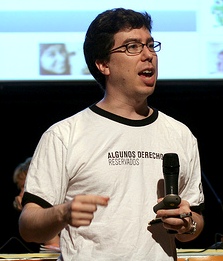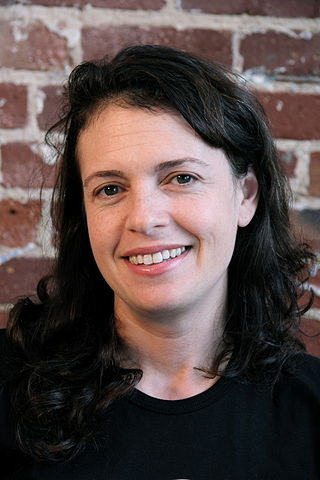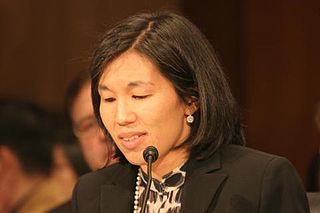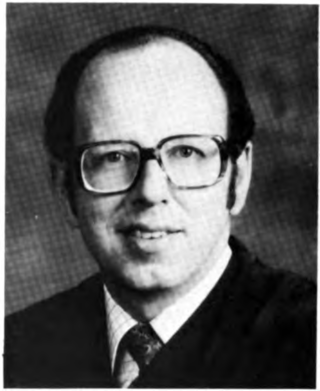IANAL is a Usenet and chat abbreviation (initialism) for the expansion "I am not a lawyer". The expansion may be used by non-lawyers who are seeking to avoid accusations of unauthorized practice of law and are not making any recommendation to the particular addressee of their remarks.

Jonathan L. Zittrain is an American professor of Internet law and the George Bemis Professor of International Law at Harvard Law School. He is also a professor at the Harvard Kennedy School, a professor of computer science at the Harvard School of Engineering and Applied Sciences, and co-founder and director of the Berkman Klein Center for Internet & Society. Previously, Zittrain was Professor of Internet Governance and Regulation at the Oxford Internet Institute of the University of Oxford and visiting professor at the New York University School of Law and Stanford Law School. He is the author of The Future of the Internet and How to Stop It as well as co-editor of the books, Access Denied, Access Controlled, and Access Contested.

A mug shot or mugshot is a photographic portrait of a person from the shoulders up, typically taken after a person is arrested. The primary purpose of the mug shot is to allow law enforcement to have a photographic record of an arrested individual to allow for identification by victims, the public and investigators. However, in the United States, entrepreneurs have recently begun to monetize these public records via the mug shot publishing industry.
Shrinkwrap contracts or shrinkwrap licenses are boilerplate contracts packaged with products; use of the product is deemed acceptance of the contract.
Wolters Kluwer N.V. is a Dutch information services company. The company serves legal, business, tax, accounting, finance, audit, risk, compliance, and healthcare markets.
Seth Warshavsky is an American pornographer and the founder of Internet Entertainment Group (IEG). During the dot-com bubble, Warshavsky's welcome of media attention made him the face of the online pornography industry to a public fascinated with what was then virtually the only segment of the dot-com industry operating at a profit. On February 10, 1998, he testified at a hearing on Internet Indecency before the US Senate Committee on Commerce, Science and Transportation.

Jennifer Stisa Granick is an American attorney and educator. Senator Ron Wyden has called Granick an "NBA all-star of surveillance law." She is well known for her work with intellectual property law, free speech, privacy law, and other things relating to computer security, and has represented several high-profile hackers.

Nancy Hardin Rogers is an American lawyer, author, and former Attorney General of Ohio, a former Dean of the Ohio State University Moritz College of Law and the former holder of the Michael E. Moritz Chair in Alternative Dispute Resolution at the Moritz College of Law. She is currently a professor emeritus.
Perkins Coie is an American multinational law firm headquartered in Seattle, Washington. Founded in 1912, it is recognized as an Am Law 50 firm. It is the largest law firm headquartered in the Pacific Northwest and has 20 offices across the United States and Asia. The firm provides corporate, commercial litigation, intellectual property, and regulatory legal advice to a broad range of clients, including prominent technology companies like Google, Twitter, Intel, Facebook, and Amazon. In addition to its corporate representation, the firm has represented political clients. The firm is known for its pro bono work.
Information technology law, also known as information, communication and technology law or cyberlaw, concerns the juridical regulation of information technology, its possibilities and the consequences of its use, including computing, software coding, artificial intelligence, the internet and virtual worlds. The ICT field of law comprises elements of various branches of law, originating under various acts or statutes of parliaments, the common and continental law and international law. Some important areas it covers are information and data, communication, and information technology, both software and hardware and technical communications technology, including coding and protocols.

Nicole A. Wong is an American attorney, specializing in Internet, media and intellectual property law. In May 2013, she was selected by the Barack Obama administration to be the White House deputy chief technology officer (CTO) of the United States. She earned the nickname "the Decider" while she was vice president and deputy general counsel at Google, where she was responsible for arbitrating issues of censorship for Google. Wong stepped down as Deputy US CTO on August 16, 2014, to return with her family to California. She currently serves as a Senior Advisor to Albright Stonebridge Group, a global business strategy firm, and is a member of the Mozilla Foundation's Board of Directors.

Marvin E. Aspen is a senior United States district judge of the United States District Court for the Northern District of Illinois.

Cyber Rights: Defending Free Speech in the Digital Age is a non-fiction book about cyberlaw, written by free speech lawyer Mike Godwin. It was first published in 1998 by Times Books. It was republished in 2003 as a revised edition by The MIT Press. Godwin graduated from the University of Texas School of Law in 1990 and was the first staff counsel for the Electronic Frontier Foundation. Written with a first-person perspective, Cyber Rights offers a background in the legal issues and history pertaining to free speech on the Internet. It documents the author's experiences in defending free speech online, and puts forth the thesis that "the remedy for the abuse of free speech is more speech". Godwin emphasizes that decisions made about the expression of ideas on the Internet affect freedom of speech in other media as well, as granted by the First Amendment to the United States Constitution.
The Jargon File is a glossary and usage dictionary of slang used by computer programmers. The original Jargon File was a collection of terms from technical cultures such as the MIT AI Lab, the Stanford AI Lab (SAIL) and others of the old ARPANET AI/LISP/PDP-10 communities, including Bolt, Beranek and Newman, Carnegie Mellon University, and Worcester Polytechnic Institute. It was published in paperback form in 1983 as The Hacker's Dictionary, revised in 1991 as The New Hacker's Dictionary.
David R. Johnson is an American lawyer specializing in computer communications. He is a senior fellow at Center for Democracy and Technology, and a former chairman of the Electronic Frontier Foundation.
Michael Greenberg is an American lawyer, regarded as a legal expert in intellectual property law and patent law. He is a partner of the Washington, D.C.-based law firm, Greenberg & Lieberman, with Stevan Lieberman, established in 1996. As part of the firm, Greenberg has been involved in hundreds of UDRP or trademark infringement disputes and is a well-regarded and experienced litigator, with particular expertise in patent infringement cases.

Whelan Assocs., Inc. v. Jaslow Dental Laboratory, Inc. was a landmark case in defining principles that applied to copyright of computer software in the United States, extending beyond literal copying of the text to copying the more abstract structure, sequence and organization. The decision initiated a six-year period of heightened copyright protection for computer programs.
Ticketmaster LLC v. RMG Technologies, Inc., 507 F. Supp. 2d 1096, was an infringement case heard by Judge Audrey B. Collins of the United States District Court for the Central District of California.
Ticketmaster Corp., et al. v. Tickets.Com, Inc. was a 2000 case by the United States District Court for the Central District of California finding that deep linking did not violate the Copyright Act of 1976 because it did not involve direct copying. The decision permitted Tickets.com to place deep links to Ticketmaster.
Chicago Options Associates (COA) is a finance company in Chicago, Illinois which specializes in trading options and futures contracts. It was founded in 1987 by Oliver R. W. Pergams and Michael E. Davis. In 1994 Davis was its chief executive officer, hiring then-graduate student Jimmy Wales as research director; Wales served in this position until 1998.









